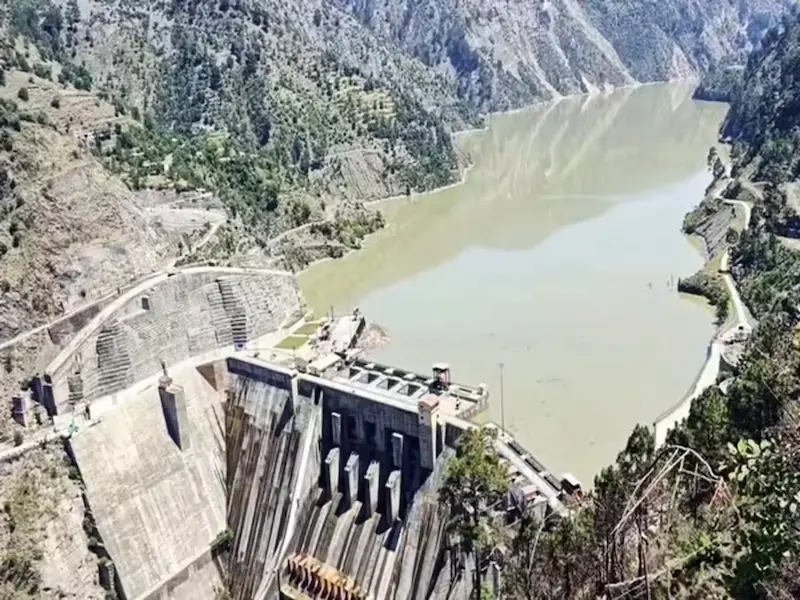
India revives the long-stalled Tulbul Navigation Project after suspending the Indus Waters Treaty, triggering alarm in Pakistan
Tulbul Resurfaces: India’s Strategic Water Play Begins
After decades of dormancy, the Tulbul Navigation Project is back on India’s strategic map. Located in Sopore, Jammu and Kashmir, the project was originally conceived in 1984 to regulate water flow from Wular Lake into the Jhelum River, enabling navigation between Baramulla and Srinagar and supporting hydropower and irrigation.
Construction was halted in 1987 following Pakistan’s objections, which claimed the project violated the Indus Waters Treaty (IWT), a 1960 agreement brokered by the World Bank that governs water sharing between the two nations. Under the treaty, India controls the eastern rivers (Ravi, Beas, Sutlej), while Pakistan receives the western rivers (Indus, Jhelum, Chenab), with India allowed limited non-consumptive use.
Now, in the wake of the April 22 Pahalgam terror attack, India has placed the IWT “in abeyance,” citing Pakistan’s continued support for cross-border terrorism. The Tulbul revival is the first major move under this new doctrine. A fresh Detailed Project Report (DPR) is being drafted, expected to be completed within a year.
The project aims to store 300,000 acre-feet of water, regulate seasonal flows, and enhance inland navigation. Indian officials argue that the plan falls within permissible treaty limits and is entirely within sovereign territory. “The water will not be diverted, only stored and released in a regulated flow,” said a senior official.
Pakistan on Edge: Water Panic and Diplomatic Fallout
Pakistan’s response has been swift and alarmed. Prime Minister Shehbaz Sharif condemned India’s actions as “weaponisation of water,” announcing urgent plans to expand domestic water storage and revive stalled infrastructure projects like the Diamer Bhasha Dam.
The suspension of the IWT has already led to a 20% drop in river water flow to Pakistan, affecting agriculture and pushing major reservoirs like Tarbela and Mangla to “dead storage” levels. The kharif crop season has been hit hard, with production of cotton and maize down by over 30% and 15%, respectively.
Pakistan has sent multiple diplomatic letters to India requesting reinstatement of the treaty and even appealed to the World Bank, which declined to intervene. The situation has escalated to the point where Pakistani leaders have called India’s actions an “existential threat,” with some warning of war if water flows are permanently blocked.
Meanwhile, Indian Home Minister Amit Shah has declared that the treaty “will never be restored,” and that water flowing to Pakistan will be diverted to Rajasthan via canal construction. This marks a dramatic shift from decades of cautious diplomacy to a more assertive and strategic posture.
Tulbul’s Promise: Utility, Sovereignty, and Regional Impact
Beyond geopolitics, the Tulbul Project offers tangible benefits for India. In Kashmir, locals welcome the move for its potential to improve water control, boost navigation, and create jobs. The project could also support hydropower generation and sediment management, addressing long-standing infrastructure challenges.
Strategically, Tulbul enhances India’s ability to maximize its share of western river waters, reducing wastage and improving dry-season resilience. It also fits into a broader national push for inland water transport, reducing dependence on road logistics and enhancing regional connectivity.
India maintains that the project is non-consumptive, aligns with treaty provisions, and is a sovereign right. However, its timing and symbolism coming after the IWT suspension make it a powerful statement of intent.
As India prepares to finalize the DPR and potentially restart construction, the Tulbul Project stands as a litmus test for future water diplomacy. Will it trigger further escalation, or force a recalibration of bilateral relations?
Conclusion:
India’s revival of the Tulbul Navigation Project is more than an infrastructure update, it’s a strategic recalibration. By asserting control over its water resources, New Delhi is signaling a new era of self-reliance, resilience, and regional assertiveness. For Pakistan, the message is clear: the days of quiet acquiescence are over. As the Jhelum flows through contested terrain, so too does the future of South Asian water politics.
Waterlines Redrawn: Amit Shah Declares Indus Treaty Dead, Vows Flow to Rajasthan
Water War Erupts: Bilawal Bhutto Threatens Retaliation as India Cuts Indus Supply
Modi Government’s Strategic Water Plan: 113-Km Canal to Boost Supply in Punjab, Haryana & Rajasthan
Stay updated with the latest news on Rapido Updates. Keep yourself updated with The World, India News, Entertainment, Market, Automobile, Gadgets, Sports, and many more
1 thought on “India’s Water Gambit: Tulbul Project Revival Sends Strategic Shockwaves Across Pakistan”